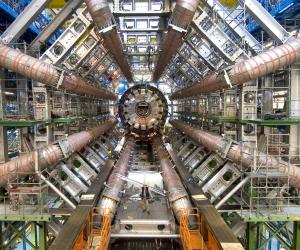Via bit-tech
-----

The Citizen Cyberscience Centre based at CERN, launched a new version of LHC@home today.
You've probably heard of Folding@Home or Seti@Home - both are
distributed computing programs designed to harness the power of your
average home PC to number crunch data, aiding real scientific research.
LHC@home, as science fans will probably have already guessed, is a
similar venture for the Large Hadron Collider (LHC). The latest version
of the Citizen Cyberscience Centre's software, called LHC@home 2.0,
simulates collisions between two beams of protons travelling at close to
the speed of light in the LHC.
Professor Dave Britton of the University of Glasgow is Project Leader of
the GridPP project that provides Grid computing for particle physics
throughout the UK. He is a member of the ATLAS collaboration, one of the
experiments at the LHC and had this to say about LHC@home 2.0 and the
Citizen Cyberscience Centre:
'Scientists like me are trying to answer fundamental questions about
the structure and origin of the Universe. Through the Citizen
Cyberscience Centre and its volunteers around the world, the Grid
computing tools and techniques that I use everyday are available to
scientists in developing countries, giving them access to the latest
computing technology and the ability to solve the problems that they are
facing, such as providing clean water.
Whether you’re interested in finding the Higgs boson, playing a part in
humanitarian aid or advancing knowledge in developing countries, this is
a great project to get involved with.;
You can check out the LHC@home home page here. Have you taken part in Seti or Folding? Maybe you're already in the hunt for the Higgs Boson?

